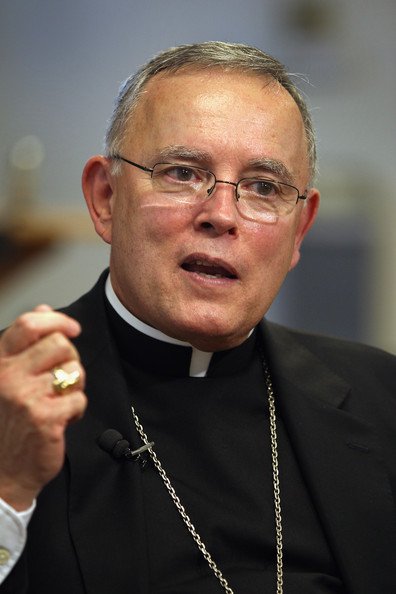
Those who have never practiced the occupations of religious leisure imagine that a solitary is constantly overwhelmed by inactivity and idleness, bored stiff, full of regrets, like a sleepy man or an irrational animal that lets the time pass doing nothing. But, my Lord God, I in my solitude speak to You. How it enchants me to speak to You, and when I speak to You I cannot lie. I declare that long years of experience have proved that the more I am solitary, the less I am idle….More than any other life, it is active and laborious. Is it idleness to read, to study, to compose, to write? Is it idleness to examine our conscience, to regulate the soul’s affections, to recall our past life, to put in order carefully our present life, to provide prudently for the future? Is it idleness to repent our past misdeeds, to combat temptation and inordinate desires, to arm ourselves in advance against the near occasions of disturbance and downfall, to think of death and to place it before our eyes so that it may not catch us unawares? Is it idleness to meditate on human and divine realities worthy of ceaselessly occupying noble minds, and to ponder these, not in haphazard daydreams, but with order and concentration? Is it idleness to raise our voice frequently by day and by night in Psalms, canticles, and hymns, praising God the Creator, and thanking Him for all His benefits? Or with a voice still more ringing and effective to ascend by mental prayer toward the divine Majesty insofar as mortal man can?….
In the exercises of solitary leisure, that is, the contemplative life, the more I do, the more I see to be done…now that by Your grace, Lord, I am more solitary than ever before, I know that I cannot find time to do all I should do and would like to do in Your service…. Oh, how much reading I would like to do, were it not for lack of time and the demands of other duties! Not that I yearn to reread the books of pagan philosophers and poets, for I regret and repent having devoted more time than I should have to such study. But I would like to read many writings that would reveal the hidden and spiritual sense of Your holy Scriptures, many works that might spur my soul to devotion and compunction, much that would help me to distinguish, so to speak, one leprosy from another, one sin from another. Oh, how I wish I could carry Your holy Gospels ever in my hand next to my heart, as we read of the holy virgin Saint Cecilia, that I might never interrupt day or night that divine reading! You know, Lord, that I have often intended to do so; but either I lacked time or my soul was occupied with other things. Not only would I like to read, but I need to apply myself earnestly to understand what is read, to commit to memory the meaning rather than the words, to compare the opinions of several doctors, or several passages of one of them, and to do other similar things, that only those who study can understand…. To read and to write are truly the easiest tasks, the least absorbing and the most imperfect of the solitary’s life…. But he must also meditate, pray, and ascend as much as possible to the contemplation of heavenly realities; think over with bitter regret the ill-used days of his life; examine, describe, dispose, regulate, moderate the passions of the present day; commit the future to God’s service; think of death and prepare for it. After such meditation on visible and created things, what can we say of the quest of the invisible reality of God, of prayer? We must thank You, Lord, for Your favors, thank You for having created us, and for us having created the whole visible world. We praise You and thank You for the benefit of the Redemption that You accomplished. You who became incarnate, who lived among men, who taught them by example and doctrine, who died and was raised to life for them. We must thank You for the countless marvelous benefits that You have granted to all humanity, for the particular benefits that You granted us and that You continue to grant each day. We must praise You, adore You, offer You the homage of latria or adoration that is due to You alone. Our intellects and our wills must unite to invoke You, to offer ourselves and to consecrate ourselves to Your service, to submit and conform ourselves to Your will, to desire You alone and Your glory, to strive to know You ever better, to love You, to raise ourselves towards You, to make friends with You, to unite ourselves to You, to be transformed in You, to disappear and to be annihilated in You. Oh, how many acts are involved in the practice of prayer, the contemplation of Your invisible and ineffable perfections: Your eternity, omnipotence, immensity, wisdom, ineffable charity, and the justice that is inseparable from Your mercy. You alone, Lord, are an endless abyss, immense, capable of absorbing forever the attention of a countless multitude of souls, as You engross the countless multitudes of heavenly spirits….
On this path, nowise idle or inactive but rather active and laborious, I ever praise You, my Lord, and strive to know and to love You always, until through Your clemency alone, I may reach that land where I can endlessly and perfectly know You, and love You, and eternally praise You. There may I sleep and rest in peace with You, rest in the peace that is not inactive and idle but is more laborious than any other occupation, the peace which You enjoy, and with You all the blessed spirits. Amen.







Recent Comments